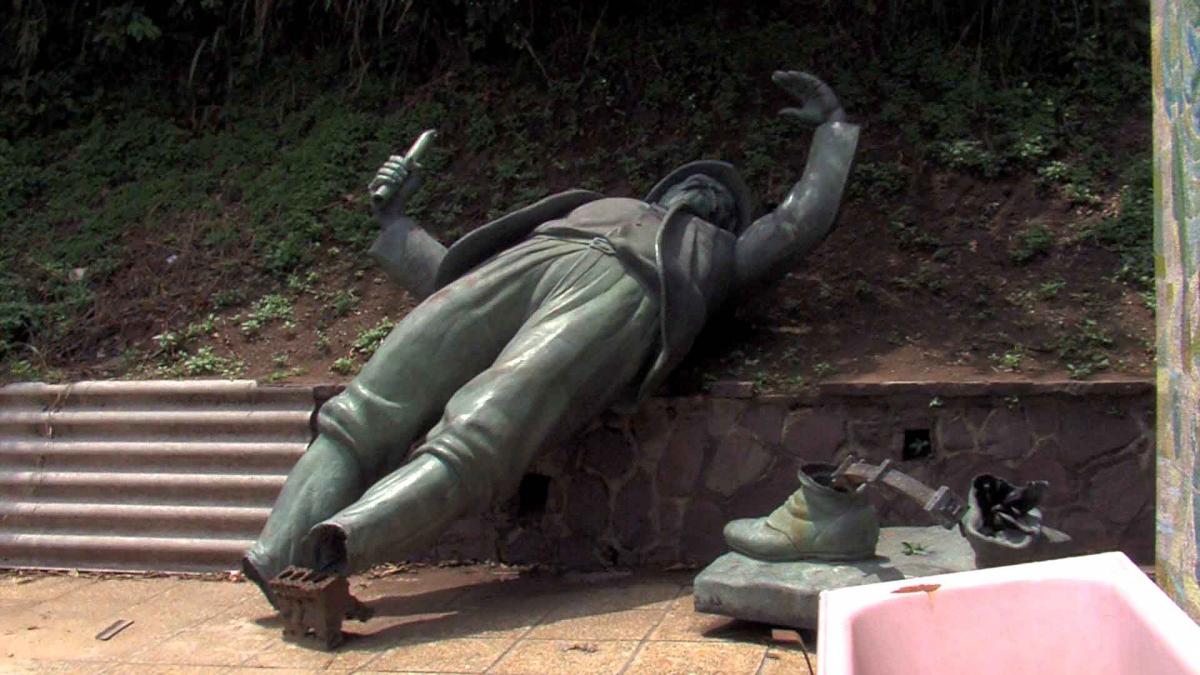Fifty years after his assassination, Patrice Lumumba, Prime Minister of the newly independent Congo, is back to haunt Belgium. Through commemorations, lectures and a return visit, a top-ranking Belgian civil servant, who was in Elisabethville on that bloody day of 17 January 1961, attempts to exorcize the ghosts of the past. To the sound of St John Passion by J.S. Bach, Spectres plunges us into one of the blackest days of the Belgian Congo’s decolonization. An examination of the bio-political body as much as a historical inquiry, this feature-length film exposes the fine line separating legitimation and historiography.
“Spectres is more than an artistic “postdocumentary,” however: It is a treatise on contemporary history, investigating our fantasies about the ways in which history is made and told and exploring how these fantasies haunt our political and social institutions.
Rachel Haidu
“For finally, it is the all-holy dogma of documentary “viewpoint” which finds itself dangerously heckled here. And indeed, Sven Augustijnen refuses to intervene, he refuses to know in place of witnesses, he denies himself the right to be, even one little step ahead of words exchanged and gestures produced. As a result, neither irony, nor overhang: no “mastery.” Faced with the specters’ force, he won’t substitute any of his own, hypothetical force of “director” or “producer” he finds himself precisely stripped of.”
Jean-Pierre Rehm
“Spectres is a dance of death when each subjugated protagonist waltzes with specters.”
Jean-Pierre Rehm
“The ghosts evoked are those of the authorities of the time who, even today, still seem to be in power—but they are also the ghosts of dreams of Independence. An accusing eye cast over the country where he was born, a distancing of memory in order to make of it a parable of History, when the word still seems live, not to say activating: it is around this paradoxical writing, somewhere between an attempt at making amends and a highlighting of the guilt of the ruling people, that this document is made, borne along by J.S. Bach’s St. John Passion. Ghosts for re-thinking the present.”
Emmanuelle Lequeux


